
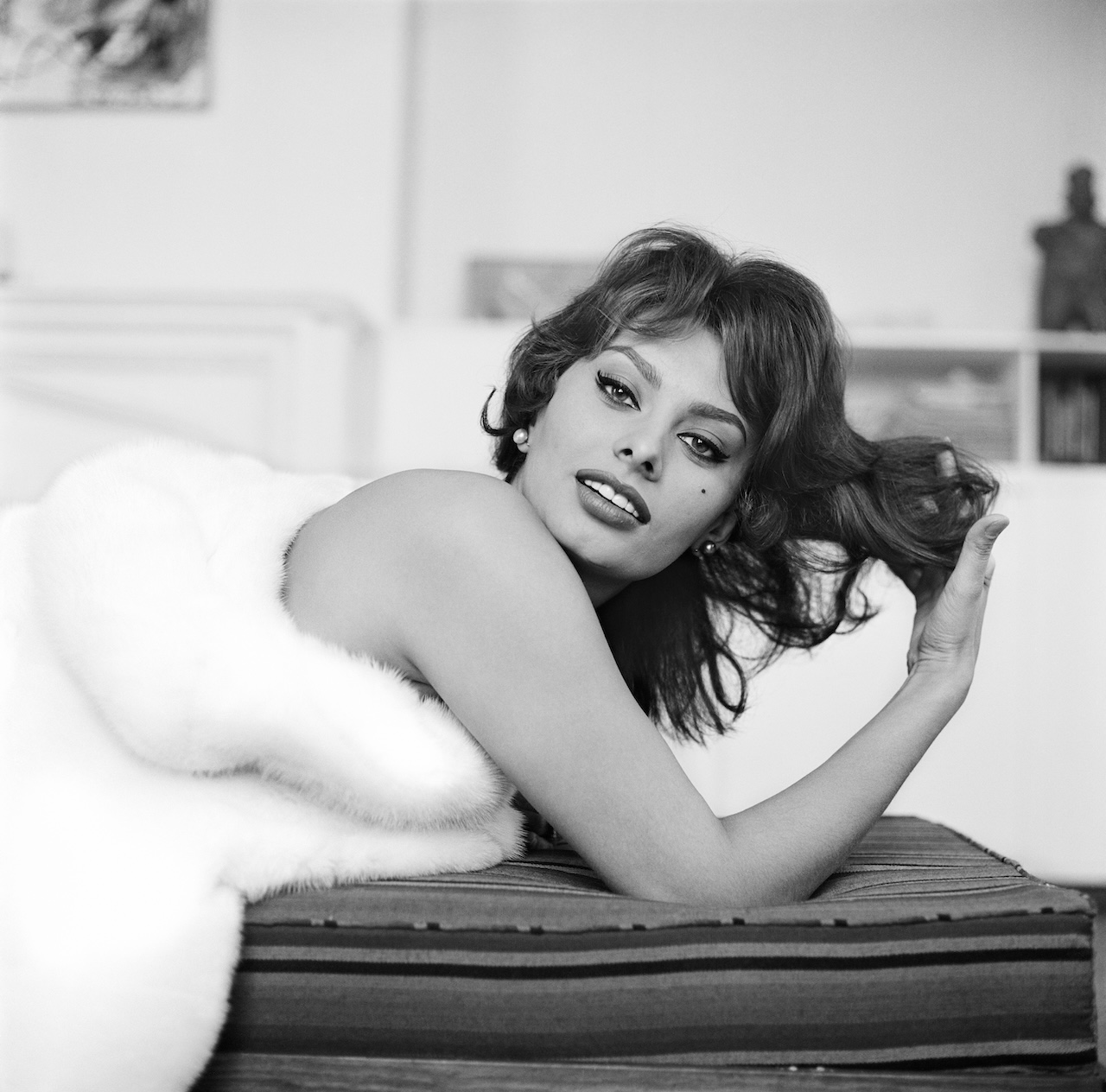
Words by Kevin Sessums
Sophia Loren–the child, the sex symbol, the artist, the actor, the woman–has always been a survivor. Now at 90, she is a marvel of sensibleness, sophistication, experience.
As a young woman, she was an old soul submerged beneath sensuality, that soulfulness that seduced us as much as her beauty. As an older actress, embedded within her mining of characters and scenes is the memory we share of her younger self, not a yearning to return to it but an appreciation of the longing she could engender within us.
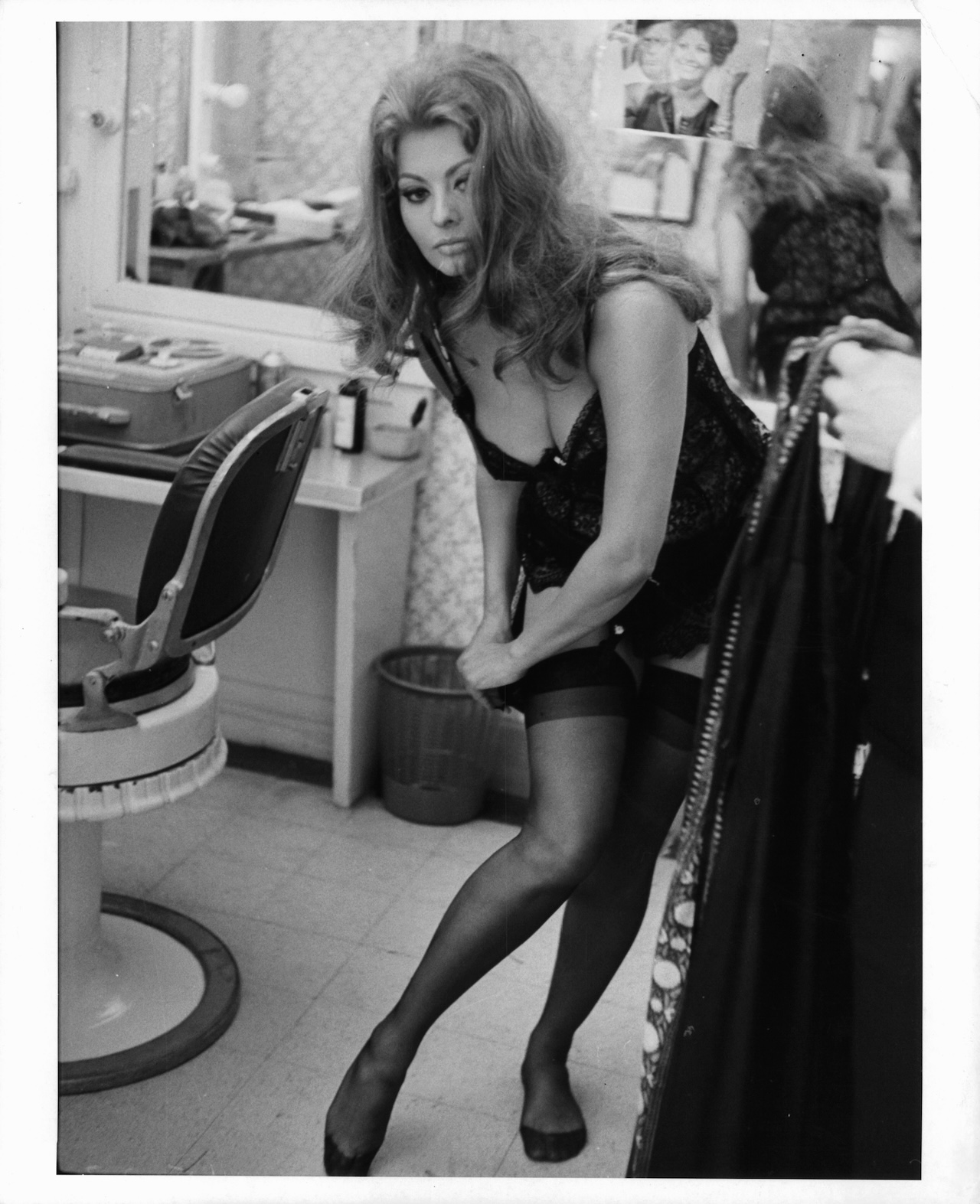
In 1962, she won the Oscar for Best Actress for her performance as the mother in Vittorio De Sica’s brilliant and moving Two Women. The story centered on Loren’s character trying to protect her young daughter and herself from the ravages of the Marocchinate, the term used for the mass rape and killings committed during World War II after the Battle of Monte Cassino in Italy. She was riveting as she attempted to relinquish her beauty, but instead it bore more deeply into her.
But Loren has been more than a legendary cinematic bombshell. She has been a fashion icon as well, beginning when she was crowned Miss Elegance in the 1950 Miss Italian pageant at 15. By 1981, she was the first actress to launch a perfume, the namesake “Sophia,” and soon afterward she also created her own line of eyeglasses. Long before either of those accomplishments, however, Dior designed custom gowns for her in Arabesque. In The Millionairess, she wore belted dresses by Balmain. On the red carpet in Cannes, Loren donned gowns by Emilio Schuberth. Paparazzi photographed her in Rome in the 1960s sporting Gucci and giving it even more glamour. No one could cock a Givenchy hat like she could or arrive at an event looking better in Armani. She was a muse to both Balenciaga and Valentino.
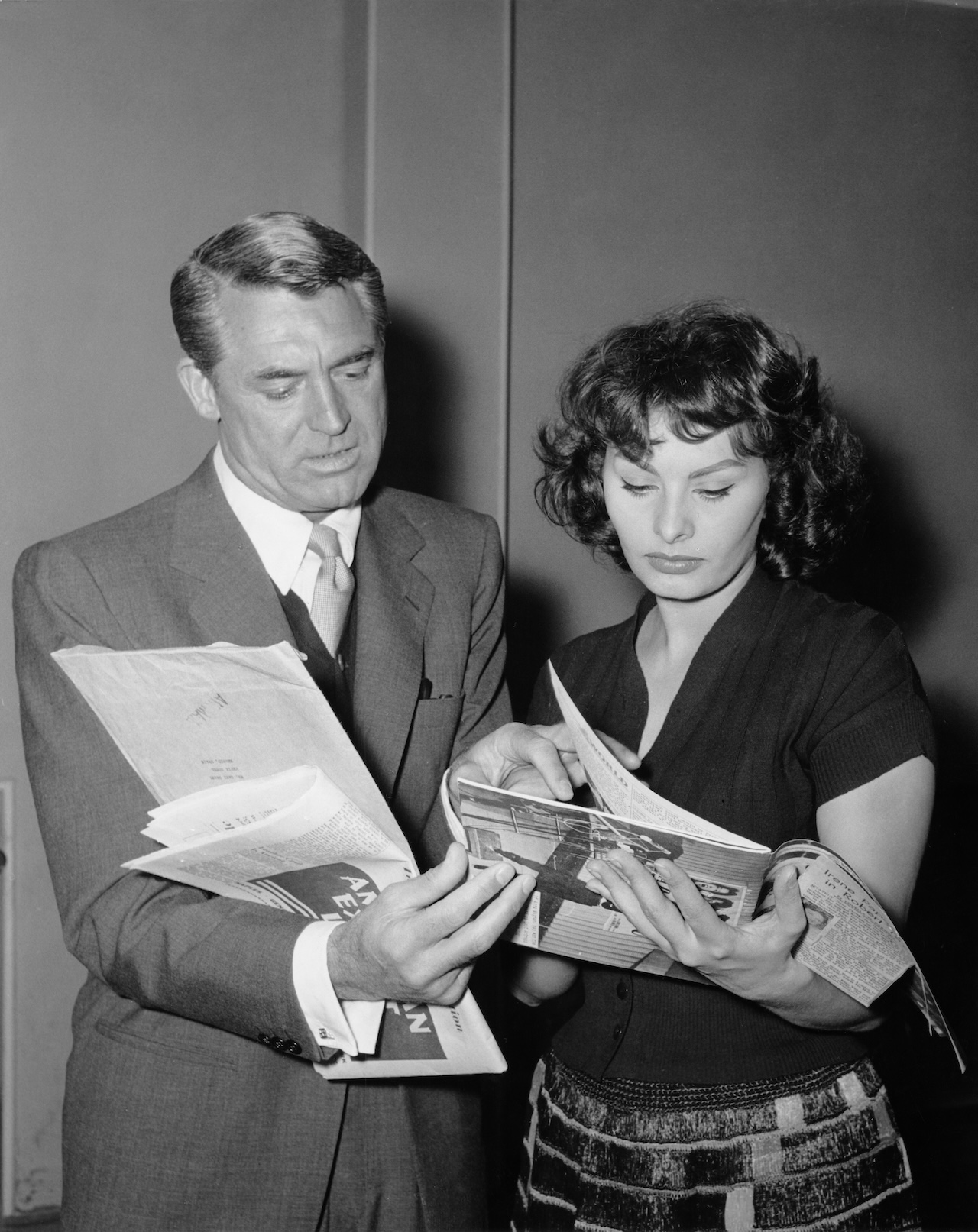
Loren, who has a close relationship with her sons, Edoardo and Carlo, is also a loving sister to Maria, an Italian television personality and columnist once married to Benito Mussolini’s jazz pianist son, Romano. (Yes, Loren once had a Mussolini as a brother-in-law, another example of how the narrative of her life reflects Italy’s.) From a little girl in Mussolini’s fascist Italy longing for her father to the most beautiful woman in the country—who millions claimed to be the most beautiful one in the world—to her later years as a kind of materfamilias for her home country, she has manifested a melange of Italian female archetypes.
And yet coupled with it all—the wisdom, the beauty, the artistic veteran—is the narrative of her childhood and her birth, her poverty, her fortitude, which can soften our perceptions—just as it toughened her. We continue to find ourselves in her cultural presence, this woman who presents herself to us, plainly and forthrightly, in the service of her craft, her art, her life’s missions of acting and being a mother while remaining calm under our collective gaze while we project our needs onto her image. And at 90, she still allows us to do so.
“Do I like being photographed? It depends on the day.”
QUESTION No. 1:
What is the source of the grace you have been able to summon in order to navigate your life—privately and publicly—which has been both difficult at times and yet so blessed?
Sophia Loren: Grace comes from understanding yourself to the point where you are comfortable with every part of you. Grace comes from being at peace with who you are and that peace or self-serenity ripples out and touches others in the form of grace. Because grace is really balance. Balance doesn’t mean that you don’t also try to better yourself, but it does mean that you are not defined by your insecurities, you are defined by acceptance and the desire to look at all parts of you and work on them with patience and empathy, not anxiety and despair. The good news about turning 90 is that you don’t have time for negativity and unbaked ego led emotions anymore, those naturally fall by the wayside leaving you to focus on what matters, on what makes you happy, whatever that may be. Even happiness frankly is not my main objective, what I try to pursue is peace and serenity. Happiness is often as transient as fireworks but peace and serenity can last a lifetime.
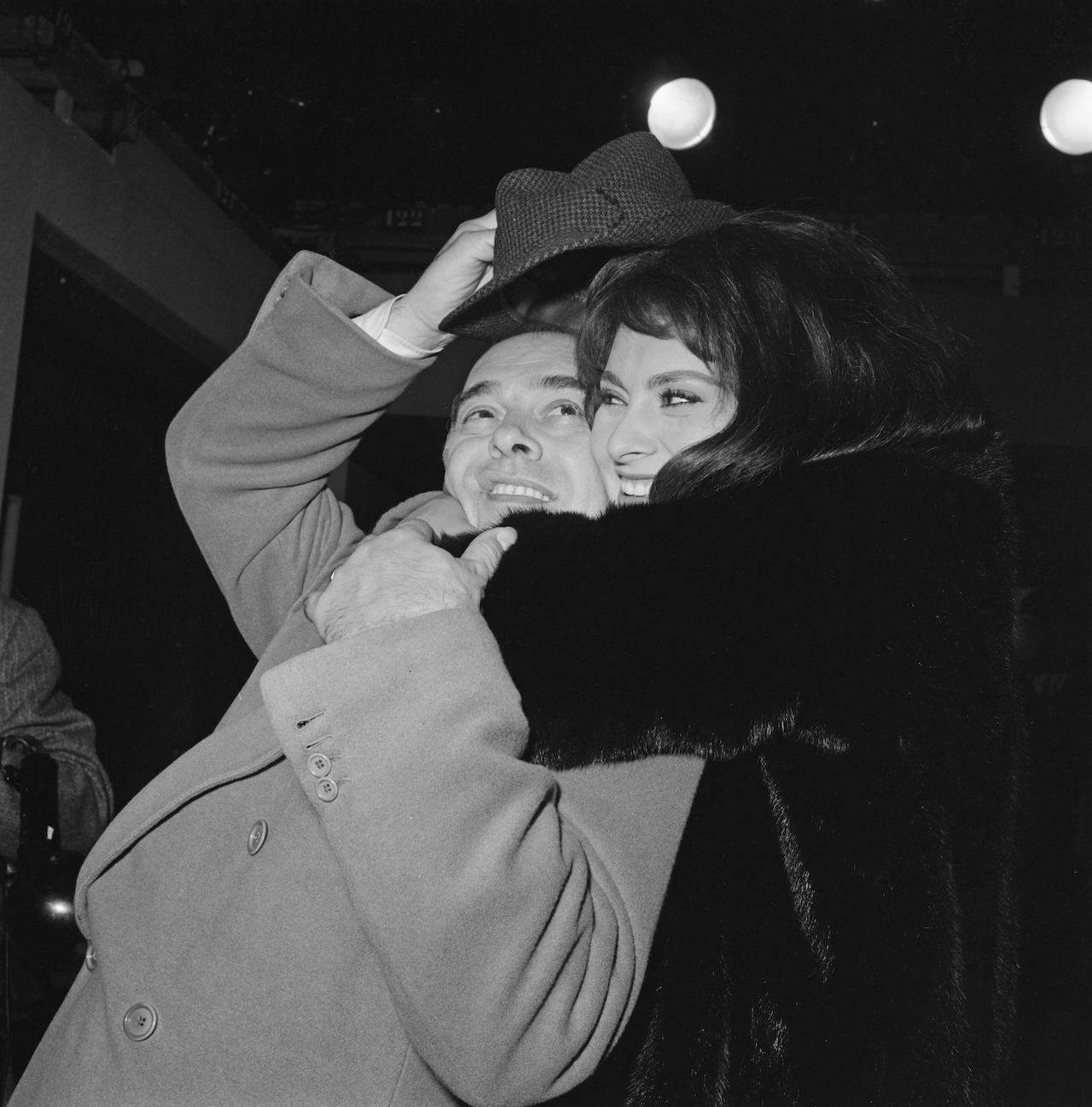
QUESTION No. 2
How have you dealt with being objectified as a sex symbol, and did such objectification morph and alter over time? You have said, “You have to be born a sex symbol. You don’t become one. If you’re born with it, you’ll have it even when you’re 100 years old.” Could you speak as well to being a sex symbol still at 90?
Loren: First of all, the term sex symbol has always made me somewhat uncomfortable. I am not naïve, I understand why I would be called a sex symbol, but it is such a minute part of me, or such a thin layer of who I am that I can’t help but not give it any true weight. And maybe that’s why I am a sex symbol, because I don’t care to be one and that insouciance or the fact that I don’t take it seriously is sexy. If you rely on your looks too much, not only people feel it but also you rely on something that is a fake friend, a false ally because eventually whether you like it or not “aesthetic beauty,” the one born from without, will inevitably desert you and then, what are you left with if that’s all you counted on, if that was the only source of your strength? Beauty might be the front door to a person, or the front façade of a person, it could be the reason why people give you the time of day at first but then once the person has walked in through the front door, beauty disappears and what people respond to is who you are inside, behind the front façade. That’s what matters–the beauty inside. It’s a cliché because it’s true. And that [inner] beauty is not as homogenized as the outer one, that beauty shines the brightest according to how unique and emotionally rich it is.
Being grounded has also a lot to do with it. Being grounded makes you open and accessible to all sorts of people, which in turn makes you all the richer humanly and this kind of beauty is ageless and timeless. In fact, it improves with age.
“The good news about turning 90 is that you don’t have time for negativity.”
QUESTION No. 3
Chaplin said, “I feel that, when I direct you, I am the director of an orchestra.” With which instrument do you most identify and why? Also, would you like to talk about any of your directors regarding those with whom you adored working, like Chaplin, as well as those with whom you found it more difficult? In addition, do you like being photographed? Some actors don’t.
Loren: My mother was a concert pianist, my son Carlo is a conductor whose specialty instrument is piano, so I would say that I relate to piano the most because it is the closest thing to an orchestra. It can be used for a solo as much as part of an orchestra. I like that. When I act, even if I am the protagonist of a film, I don’t see myself as the “lead,” I see myself as part of a team, part of an orchestra. Yes, I might be the “first violin” or the “featured pianist” but always in relation to a greater ecosystem. I am at the service of my character, of the story, of the director.
The director that taught me everything I know, that helped me “unlock” whatever it is I had inside so the camera could capture it is Vittorio De Sica. He was and still is my mentor. When I work, I can still hear his voice whispering directions in my ear, I can still feel his gaze upon me full of encouragement and paternal love. I drew so much courage and bravery from that gaze, that gaze made me who I am today.
Do I like being photographed? It depends on the day. Sometimes I do, sometimes I don’t. Being photographed is exactly the opposite of acting. When you act, your job is to react to everything around you, every moment calls for a different emotional color. Being a model is to hone in on the color the photographer is seeking and when you find it, freeze in that moment until the photographer tells you to shift. So really, being a model and being an actor are two opposite things.
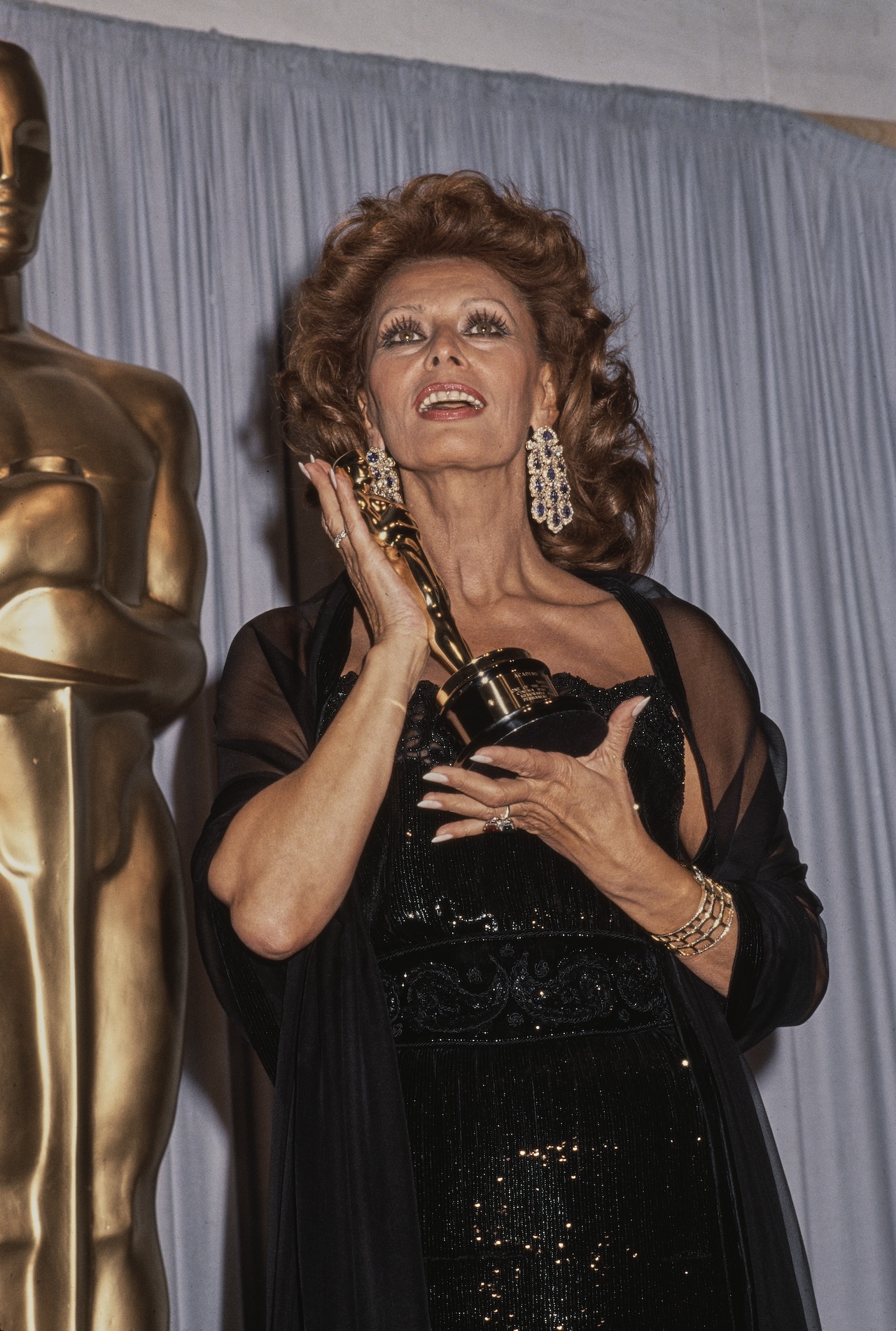
QUESTION No. 4
Do you remember anyone intersecting with your life and unexpectedly teaching you a lesson that has stayed with you ever since? How has kindness played a part in your life?
Loren: Kindness is everything. It’s what every relationship should be based on because kindness is not just kindness, when you are kind to someone, it also means that you respect them, that you see them, that you acknowledge every layer of who they are. Kindness is essential to me maybe because I grew up in a time during the Second World War when kindness was replaced by vitriol and bombs, but underneath the rubble, in the basement and tunnels where he hid from the attacks, there was a lot of kindness. That kindness shown to us by our neighbors, or the stranger huddled next to us waiting for the sirens to stop, or the family relative. That brand of kindness is what kept us safe and sane. I want everyone to feel that kindness.
QUESTION No. 5
I appeared as Alan Strang in Equus with Tony Perkins when he played Dr. Dysart, so I have a personal connection to this question. What are your memories of dear Tony? And, in his memory, what has taught you the most about love and selflessness and human understanding?
Loren: I remember Tony as a very generous actor, thoughtful and open. I loved looking into his eyes, he had such a rich enigmatic inner life. He was able to shift so effortlessly and so quickly from light to darkness, from goodness to mystery. It was incredible to behold. Being an actor really means to be a reactor to whatever your scene partner throws your way and that means being a good listener. Tony was an amazing scene partner because he was so present and responsive. What he taught me was to remind me to listen.
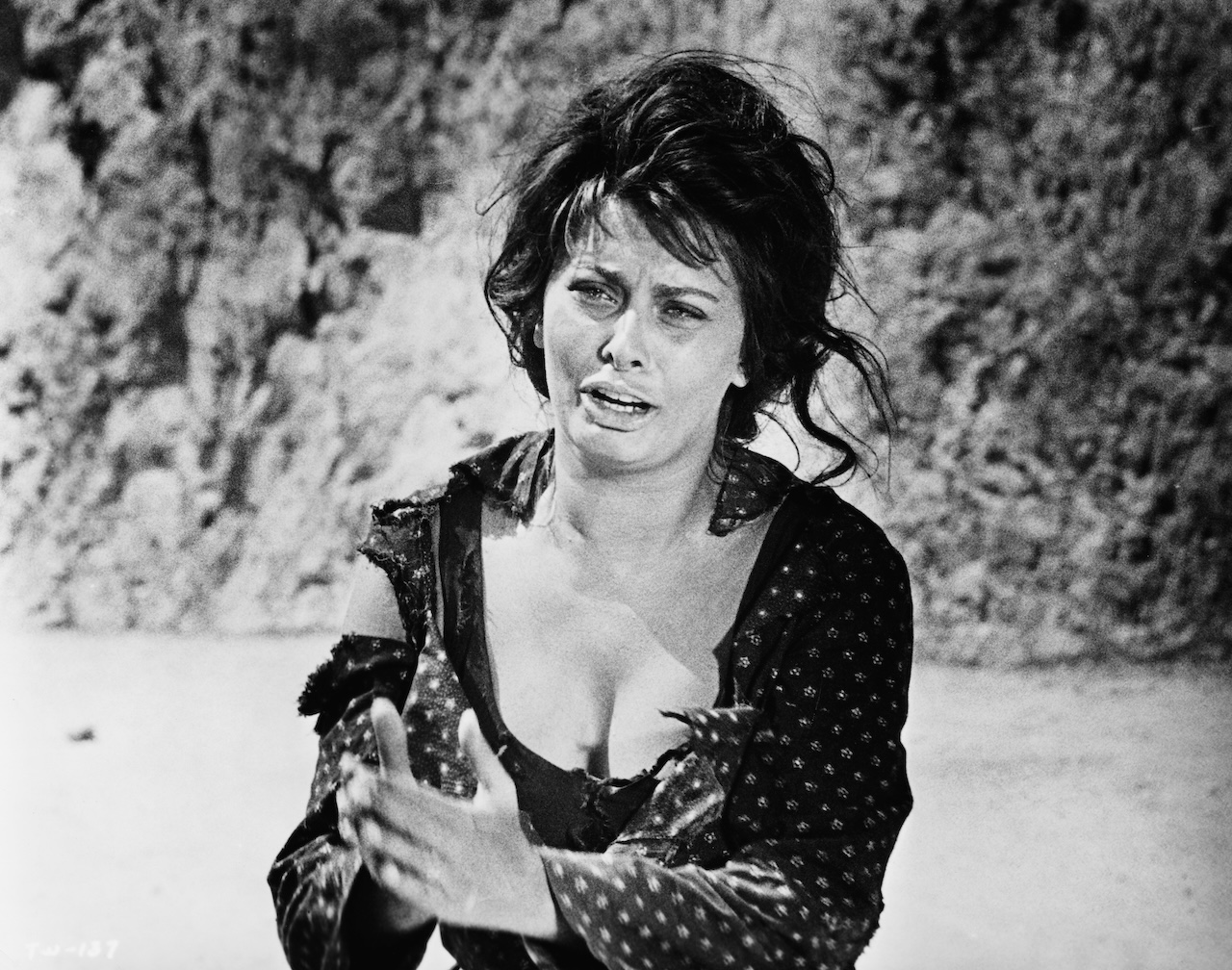
QUESTION No. 6
You have said that your mother, Romilda, did not really know how to dream, and you had to teach yourself how to do so. Could you describe your life as a mother and how it has differed from your mother’s? What did family once mean to you and what does it mean to you now?
Loren: It is no secret that my greatest wish in life was to become a mother. It wasn’t easy for me to get pregnant but when I finally did and held my sons, nothing could prepare me for that rush of unconditional love. Family has always meant stability and serenity to me, something that growing up with a single mother in Italy in the 1930s I was in want of. My mother raised my sister and me in a time of war, in a time of prejudice against women who weren’t married, so our family was under constant assault from the judgmental gaze of others. Growing up like this was not easy and I credit my mother for overcoming the stares, the vitriol and creating a life for us that was as smooth as possible.
Now that I have children, I realize that the role of mother changes as your kids grow. At the start of their lives, you are a protector, as they grow up, you are an educator. When they hit the teenage years you are a combination confidante and guardrail, and then when they become adults, you are an ally and a sounding board. I love all the stages.
QUESTION No. 7
How has fashion served your image and your career? Could you comment on the difference between fashion and style?
Loren: Frankly, I don’t spend a lot of time thinking about fashion. I like it, I like to wear beautiful things, I have had the good fortune to be dressed by the best but fashion per se has never defined me. I always go for simplicity and the type of style that doesn’t wear me. I like to wear the clothes, not the other way round. Timelessness has always been my thing, that and the color red, and sometimes I let red wear me.
“Kindness is everything. It’s what every relationship should be based on.”
QUESTION No. 8:
What would your young self—Sofia Costanza Brigida Villani Scicolone—ask of “Sophia Loren”? And what would Sophia Loren ask of Sofia Costanza Brigida Villani Scicolone?
Which of those two names is indeed more deserving now of those quotation marks around them? Who is the more real you after 90 years?
Loren: The question is too intellectual for me. The two spellings of my name are who I am, no distinction between them at all. They are wholly interchangeable to me.













